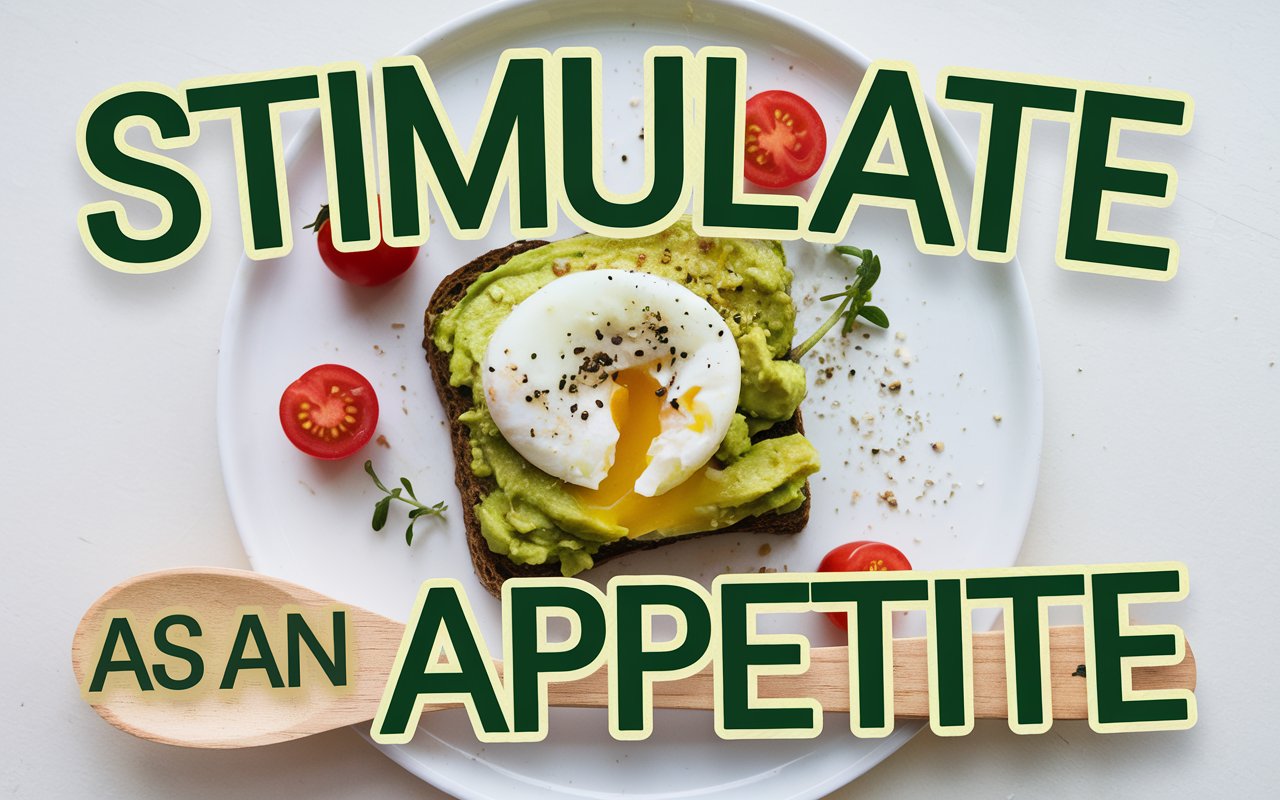In the world of crossword puzzles, particularly in the New York Times (NYT) crosswords, certain clues often leave people scratching their heads. One such clue that frequently appears in various crossword puzzles, including the NYT, is “stimulate as an appetite.” This phrase not only challenges puzzle solvers but also brings up interesting ideas about how appetites work and what can increase or “stimulate” them.
When thinking about how appetites are triggered or enhanced, whether in a medical context or daily life, the concept goes beyond just solving a crossword puzzle. In this article, we’ll explore both the crossword side of things and dig into how appetites are stimulated in real life, offering insights that combine fun with practical information.
What Does “Stimulate as an Appetite NYT” Mean in Crosswords?
If you’re someone who loves solving crosswords, especially the NYT crossword, you know how tricky some of the clues can be. “Stimulate as an appetite” is a clue that typically has a five-letter answer. This answer usually refers to something that makes a person feel hungrier or that can increase their desire for food.
In crossword puzzles, you might come across variations of this clue in other publications like the LA Times or Daily Celebrity crosswords. The answer to this clue typically revolves around words like:
- WHETS: This word means to sharpen, often used metaphorically to mean increase or stimulate, especially in the context of hunger or appetite.
By solving this clue in crosswords, solvers are learning more than just a vocabulary word. They are also learning about how language and meaning can reflect real-life experiences. While this is fascinating, it also leads us into the larger topic of appetite stimulation in real life.
How Does Appetite Work?
Appetite is a natural biological urge that tells your body it’s time to eat. However, appetite isn’t just about feeling hungry. It’s influenced by many factors such as your environment, emotions, hormones, and even your daily routine. It’s important to differentiate between appetite and hunger. While hunger is a physiological need for food, appetite is the psychological desire to eat.
Your body has several ways of regulating appetite:
- Hormones: Hormones like ghrelin (“hunger hormone”) tell your brain it’s time to eat, while leptin signals when you’re full.
- Sensory Cues: The sight, smell, or even thought of food can trigger your appetite.
- Emotional State: Stress, anxiety, and emotions can either increase or suppress appetite.
- Nutritional Status: When your body is low on certain nutrients, your appetite may increase to compensate.
When crossword clues talk about stimulating appetite, it often brings to mind the science behind how our bodies encourage us to eat more. This can be incredibly relevant for people dealing with appetite loss or those who want to maintain a healthy balance.
Real-World Ways to Stimulate Appetite
For some people, appetite is suppressed due to illness, stress, or other medical conditions. In these cases, stimulating appetite becomes important for maintaining a healthy weight and getting enough nutrients. Below are some common ways to stimulate appetite:
- Smaller, Frequent Meals: Instead of overwhelming your stomach with large portions, eat smaller amounts more often throughout the day.
- Incorporate Flavors and Spices: Bold flavors from spices like ginger, cinnamon, or chili can help stimulate taste buds and increase the desire to eat.
- Stay Hydrated: Dehydration can reduce appetite, so it’s crucial to drink enough water throughout the day.
- Physical Activity: Light exercise, like walking, can naturally increase hunger by boosting metabolism and improving mood.
- Appetite Stimulant Medications: In certain medical conditions, doctors may prescribe medications specifically designed to increase appetite.
- Mindful Eating: Paying attention to your food, focusing on its taste and texture, can increase satisfaction and make meals more enjoyable.
- Reduce Stress: High levels of stress can decrease appetite, so finding ways to manage stress, such as through relaxation techniques, can help improve appetite.
These methods work not only for people with diminished appetites due to medical conditions but also for those who may just be looking to enhance their eating experience.
Appetite and Emotional Connection
One overlooked aspect of appetite is its connection to our emotional state. Many people experience changes in appetite when they are stressed, anxious, or depressed. In these situations, some might turn to comfort foods, while others lose their appetite entirely.
Here are ways to manage emotional influences on appetite:
- Stress Management: Yoga, meditation, and mindfulness techniques can help manage stress and keep your appetite in balance.
- Social Eating: Sharing meals with friends or family can make eating more enjoyable, helping to stimulate appetite in a positive way.
Appetite in Different Life Stages
Appetite naturally changes as we age. Infants, growing children, adults, and the elderly all have varying appetites. Here’s a quick breakdown:
- Infants and Children: Rapid growth in infancy and early childhood typically leads to increased appetite, though kids can be picky eaters.
- Teenagers: During puberty, teens often have larger appetites due to growth spurts and hormonal changes.
- Adults: As metabolism slows, adults may experience a decrease in appetite, especially if they lead a sedentary lifestyle.
- Elderly: Aging often brings a natural decline in appetite due to slower metabolism, changes in taste and smell, and less physical activity.
For older adults, stimulating appetite can be crucial for maintaining health. Offering nutrient-dense meals, ensuring hydration, and even incorporating physical activity can help.
Why Crossword Clues Like “Stimulate as an Appetite” Matter?
Crossword clues such as “stimulate as an appetite” do more than entertain. They connect language to everyday experiences. By challenging solvers with this phrase, the puzzle indirectly engages with larger concepts of how the body functions and how appetite works.
For example, solving the clue WHETS provides a metaphor for understanding how something can be sharpened or stimulated—much like the body’s mechanisms for appetite stimulation.
How to Solve More NYT Crossword Clues Like “Stimulate as an Appetite”?
If you’re a fan of crosswords, you probably enjoy the challenge of figuring out tricky clues like “stimulate as an appetite.” Here are some tips to help you solve these kinds of crossword puzzles:
- Start with the Short Words: Fill in the shorter words first, which can help unlock longer words and clues.
- Use Crossword Databases: Websites that collect crossword answers, like Crossword Solver or Wordplays, can be a big help when you’re stuck.
- Look for Common Synonyms: Crossword clues often use synonyms. In this case, “whets” is a synonym for “stimulates” or “increases.”
- Keep Practicing: The more you practice solving crosswords, the better you get at recognizing patterns and frequently used words.
FAQs
1. What is the common five-letter answer to “stimulate as an appetite” in NYT crosswords?
The answer is typically “WHETS.”
2. Why does “whets” mean to stimulate appetite?
The word “whets” means to sharpen or enhance, which metaphorically applies to increasing hunger.
3. How often does “stimulate as an appetite” appear in NYT crosswords?
It’s a relatively common clue, appearing in various crosswords over the years.
4. Can crossword puzzles help improve vocabulary?
Yes! Regularly solving crosswords can improve your vocabulary and problem-solving skills.
5. What factors naturally stimulate appetite?
Factors include sensory cues (smell and sight of food), hormones, emotions, and physical activity.
6. What foods help stimulate appetite?
Foods rich in flavor, such as those with strong spices and herbs, can help stimulate appetite.
7. Can stress reduce appetite?
Yes, high levels of stress can decrease appetite for some people, while others may experience increased cravings.
8. What medications are used to stimulate appetite?
Medications like Megestrol acetate and certain corticosteroids are prescribed to stimulate appetite in medical cases.
9. Are there natural supplements that can help increase appetite?
Yes, supplements like zinc, fish oil, and certain herbal remedies are believed to help increase appetite.
10. How does aging affect appetite?
Appetite tends to decrease with age due to changes in metabolism, taste, and smell.
Conclusion
While “stimulate as an appetite” may seem like a simple crossword clue, it opens the door to much broader topics. Appetite is a complex interaction of biological, emotional, and environmental factors. Whether you’re solving puzzles or trying to understand how to stimulate your appetite in real life, there’s always something new to learn.


